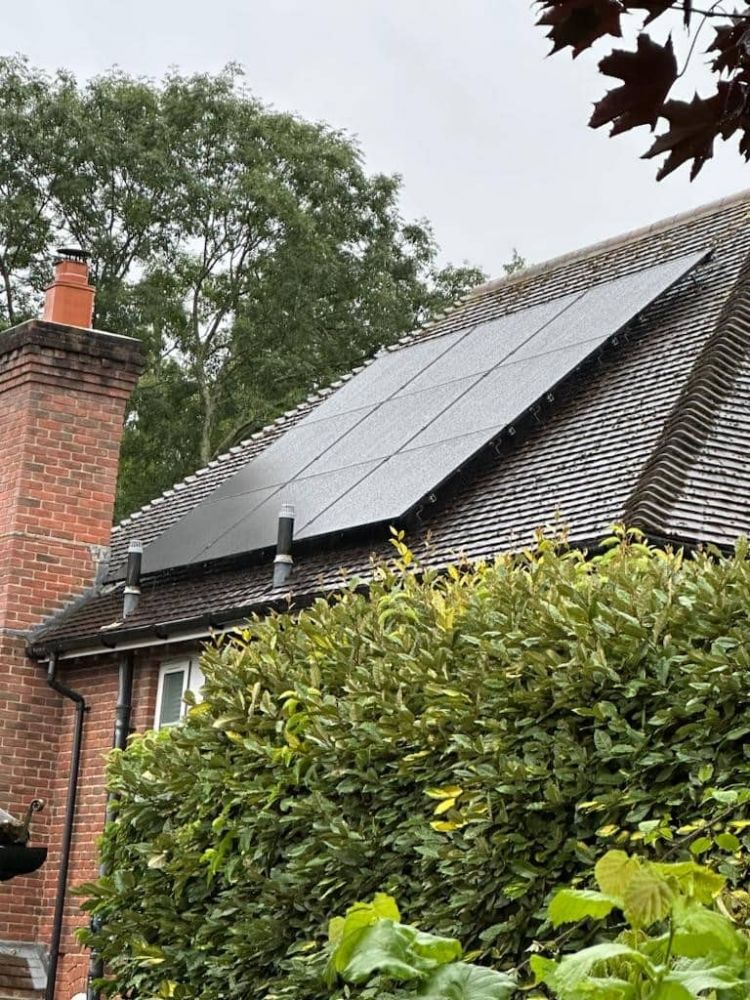

Residential solar power has become an increasingly popular choice among UK homeowners looking to reduce energy costs and decrease their carbon footprint. With rising energy prices and a growing awareness of environmental issues, solar power offers an efficient and sustainable way to power homes across England. This guide explores the benefits of residential solar, factors to consider, and the potential return on investment, providing you with the knowledge needed to make an informed decision.

Residential solar systems allow homeowners to harness the sun’s energy, convert it to electricity, and power their homes. Beyond reducing energy costs, installing solar offers multiple advantages, from environmental impact to property value.
One of the most immediate benefits of going solar is the reduction in energy bills. With solar panels, you generate your own electricity, reducing your reliance on the grid. Here’s how it works:
Residential solar is a powerful tool for reducing greenhouse gas emissions, as it relies on renewable, clean energy. Unlike fossil fuels, solar doesn’t produce pollutants or carbon emissions. For environmentally-conscious UK residents, this makes solar an attractive choice:
Homes equipped with solar systems often experience increased property values, as potential buyers are drawn to the promise of lower utility bills and reduced environmental impact. Studies suggest that properties with solar systems can sell faster and at higher prices than those without:
Solar systems involve upfront costs that vary based on system size, panel type, and installation. However, government incentives and financing options are available to make solar more accessible to homeowners.
Residential solar installation costs have decreased significantly over the years. Key factors influencing costs include:
Financing options such as solar loans and green mortgages are available, allowing homeowners to pay over time rather than upfront.
The UK government offers several initiatives to encourage residential solar adoption:
These incentives make solar a more affordable and attractive option, improving both the financial and environmental appeal of residential systems.
While solar power offers numerous benefits, it’s essential to evaluate whether it’s the right fit for your home.
Solar systems work best on roofs with high sun exposure. Here’s what to consider:
Battery storage allows homeowners to store excess solar power for use during non-sunny periods, such as at night or during winter months:
Residential solar systems require minimal maintenance, but they do have a long lifespan:
Starting with residential solar involves a few essential steps, from assessing your home’s suitability to choosing the right installer.
Assess your household’s average energy consumption. Installers can help you choose a system size that matches your needs:
Finding a certified, reputable installer is key to ensuring a quality system and seamless installation process. Look for companies with good reviews, strong warranties, and industry certification:
Residential solar power offers UK homeowners a path to energy independence, lower bills, and a reduced carbon footprint. With attractive government incentives and a range of system options, solar is more accessible and beneficial than ever before. Ready to explore the benefits of solar for your home? Visit our Residential Solar Services page to learn more and start your journey towards a greener, more cost-effective future.
Speak to our team today about installing solar panels
Speak to our team today about installing solar panels
Greener Future Partners
Latest Articles from Greener Future
Octopus Flux: Empowering Your Green Journey with Greener Future
Unlock the power of Octopus Flux with Greener Future's solar solutions for your home or business in the UK.
Discover the Intelligent Octopus Go with Greener Future
Upgrade to the Intelligent Octopus Go with Greener Future. Our solar experts provide tailored solutions to help you achieve a greener future in the UK.
Find the Right Solar Energy System for Your UK Property
Discover the best solar energy solutions for your UK home or business with Greener Future. We provide expert guidance on solar panel installation, battery storage, and more.
Discover the Benefits of a Solar Farm in the UK
Unlock solar panel grants & funding opportunities in the UK with Greener Future Ltd, your trusted solar solutions provider.